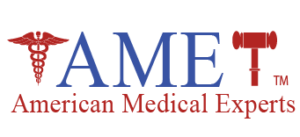Anesthesiologists provide medical care to patients before, during, and after surgical procedures. This includes a preoperative medical evaluation of each patient before surgery, consultation and planning of the surgery with the surgeons, creating a plan for the anesthesia tailored to each individual patient, airway management, intraoperative life support and provision of pain control, intraoperative diagnostic stabilizing and preparing patients for emergency surgery are mandatory, essential, and critical skills of which anesthesiologists have been trained to employ. One of AME’s anesthesiology expert witnesses has written an exclusive medical malpractice article that we have provided, for your interest, below.After any major chest or abdominal surgery, the patient has pain, may not be able to cough well, and may develop pneunonia. The doctor has to be sure that the patient is breathing properly, has physical therapy for the chest problems, or suction of the throat and trachea if needed. A tracheostomy, which is a cut in the windpipe, for direct and frequent suctioning of chronic lung patients, should be performed when indicated. If their lungs are failing, they should be given adequate oxygen by putting them on a respirator (ventilator). All these are parameters which have to be reviewed with regard to postoperative care of patients.
Anesthesiologists provide medical care to patients before, during, and after surgical procedures. This includes a preoperative medical evaluation of each patient before surgery, consultation and planning of the surgery with the surgeons, creating a plan for the anesthesia tailored to each individual patient, airway management, intraoperative life support and provision of pain control, intraoperative diagnostic stabilizing and preparing patients for emergency surgery are mandatory, essential, and critical skills of which anesthesiologists have been trained to employ. One of AME’s anesthesiology expert witnesses has written an exclusive medical malpractice article that we have provided, for your interest, below. Anesthesiology case – Medical Malpractice After any major chest or abdominal surgery, the patient has pain, may not be able to cough well, and may develop pneunonia. The doctor has to be sure that the patient is breathing properly, has physical therapy for the chest problems, or suction of the throat and trachea if needed. A tracheostomy, which is a cut in the windpipe, for direct and frequent suctioning of chronic lung patients, should be performed when indicated. If their lungs are failing, they should be given adequate oxygen by putting them on a respirator (ventilator). All these are parameters which have to be reviewed with regard to postoperative care of patients. In anesthesia, the critical thing is management of the airway. Was a tube placed into the trachea, (windpipe) properly and immediately and connected to the ventilating machine? Was oxygen given? Was nitrous oxide, a gas anesthetic, switched on instead of oxygen? Was the proper anesthetic gas given? Was the patient given sufficient oxygen? When there is a complication and the patient was not getting oxygen, did the surgeon notice during surgery that the red arterial blood was turning blue? Was the blood changing color? Were the fingernails in a female patient void of nail polish so the pinkness of the oxygen content of the blood could be seen? The doctors have to be able to monitor the patient properly and if there is a complication, to recognize it in a timely manner. Many complications of anesthesia in an operating room are preventable. If the patient was placed on his side for kidney surgery, for example, the operating table is bent and a “rest” (an elevation) is pushed up to bend the patient by stretching the muscle from the hip to the rib area, or in chest surgery, under the upper chest to stretch the ribs apart, were the patient’s nerves protected under the armpit region? Did the patient wind up with paralysis of the arm? Was their spinal cord so flexed that they became paralyzed? Or, were they lying down on their back with their arms overextended up over the head and the brachial plexus, the nerves to the arms, overstretched? It’s negligence. Was the elbow protected? Did they get ulnar nerve damage at the “funny bone” area causing a claw hand? Was the elbow crushed against the metal edge of the operating table and not protected properly? It’s negligence. Yes, it is res ipsa loquitur, but you need to have an expert testify that it did not happen in your case in the absence of negligence. It’s a medical malpractice case needing analysis and testimony on negligence, causation and damages just as every other case. Proper positioning of the patient in the operating room is the responsibility of the anesthesiologist, nurse, operating room technician, assistant surgeon and surgeon. Never forget that there is an assistant surgeon, often with his or her own insurance policy, who should be sued. Also, do not overlook each of the anesthesiologists (there are several because they take shifts during long anesthetics). Anesthesiologists, the hospital, the surgeon, the assistant surgeon, and all of the corporations associated with these entities, should be defendants.

